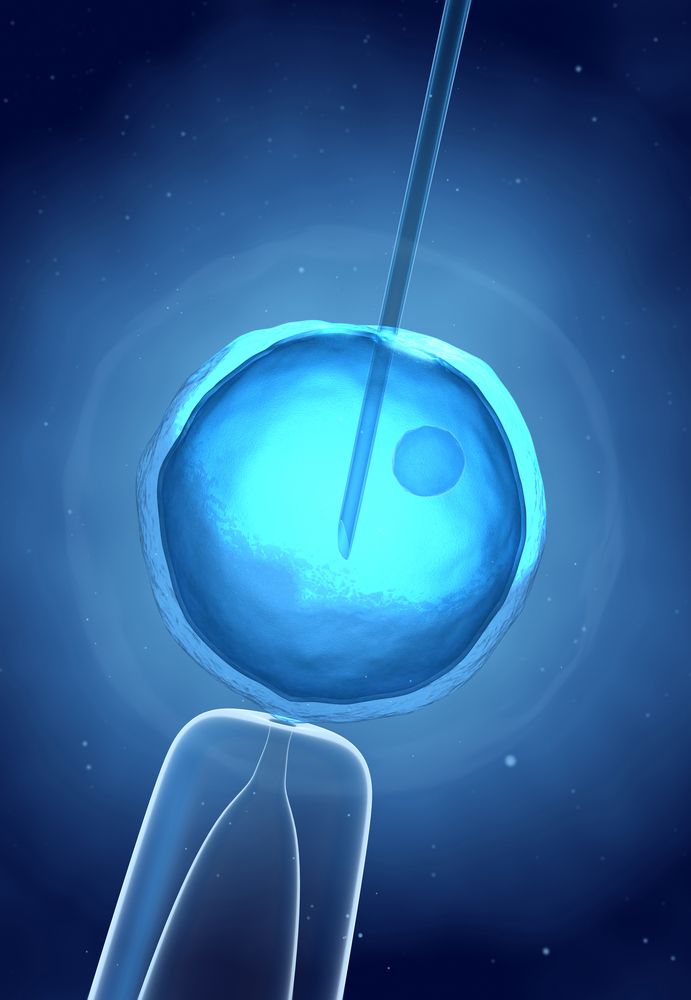ICSI vs. IVF: Which Treatment Is Right for You?
 Millions of people who struggle with male and female infertility issues have been able to successfully conceive with the help of assisted reproductive technologies. In vitro fertilization, or IVF, is the most popular of these treatments. At the Center for Fertility and Gynecology, Dr. Michael Vermesh and our team also offer intracytoplasmic sperm injection, or ICSI, is a technique that can be performed in combination with IVF. When you come in for an initial consultation, we will meet with you, conduct examinations, review your medical records, and discuss your concerns with you to determine which course of treatment may be appropriate for you. In the following blog post, we discuss the differences between ICSI vs. IVF and describe how we can help you conceive at our Los Angeles fertility and gynecology practice.
Millions of people who struggle with male and female infertility issues have been able to successfully conceive with the help of assisted reproductive technologies. In vitro fertilization, or IVF, is the most popular of these treatments. At the Center for Fertility and Gynecology, Dr. Michael Vermesh and our team also offer intracytoplasmic sperm injection, or ICSI, is a technique that can be performed in combination with IVF. When you come in for an initial consultation, we will meet with you, conduct examinations, review your medical records, and discuss your concerns with you to determine which course of treatment may be appropriate for you. In the following blog post, we discuss the differences between ICSI vs. IVF and describe how we can help you conceive at our Los Angeles fertility and gynecology practice.
What Is IVF?
In vitro fertilization, or IVF, is a multi-step process. First, our physicians will prescribe special medications to stimulate the production of multiple eggs. When the eggs are ready, we will administer an injection to release them so they can be harvested. Once our fertility specialists have collected them, we will combine them with a sperm sample in our laboratory. Finally, we will place the fertilized embryos within the woman’s uterus, where one or more will hopefully implant and lead to pregnancy.
Who Is a Candidate for IVF?
You and your partner may be eligible for IVF if:
- You have been unable to become pregnant naturally after trying for one year (if you are under 35) or six months (if you are over 35).
- The female partner suffers from infertility issues such as endometriosis, ovarian abnormalities, blocked or damaged fallopian tubes, or uterine tumors. IVF may also be appropriate for women who have previously undergone sterilization surgery.
- The male partner suffers from low sperm count.
What Is ICSI?
Intracytoplasmic sperm injection, or ICSI, is very similar to IVF, but with one key modification. When our doctors perform this treatment, we inject the sperm into the harvested eggs rather than simply combining them in the same dish. Once they have been directly fertilized, we will place the eggs within the female partner’s uterus, just as with IVF.
Who Is a Candidate for ICSI?
Since it helps ensure that sperm samples more effectively fertilize harvested eggs, our physicians often recommend ICSI for patients who struggle with male fertility issues. ICSI may be appropriate for you if the male partner suffers from any conditions that interfere with the quality of sperm, including:
- Antisperm antibodies
- An extremely low sperm count
- Irregular morphology (sperm shape and size)
- Low motility
- A limited supply of frozen sperm
- Difficulty attaching to and penetrating the egg
Our physicians can perform diagnostic tests to assess your sperm and determine if ICSI may be a good option for you. We may also suggest ICSI if you and your partner have gone through multiple failed IVF cycles.
Find Out More about ICSI vs. IVF
We offer both ICSI and IVF to suit our patients’ distinctive needs and preferences. Contact our fertility and gynecology practice today to learn more about these treatments or schedule a consultation with one of our doctors.







